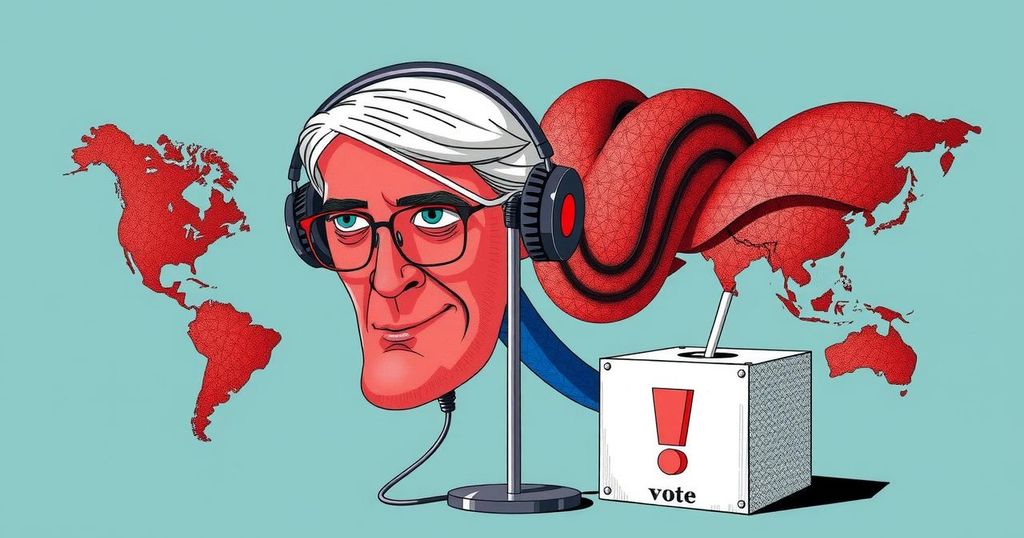The year 2024 saw approximately 3.7 billion people eligible to vote globally, with significant elections highlighting the risks of misinformation, AI, and foreign interference. While some assessments downplayed the impact of these factors, notable events—such as the annulment of Romanian election results—underscored the ongoing threat to electoral integrity. Instances like Imran Khan’s AI-generated address and disinformation campaigns targeting the EU emphasize the need for robust safeguards.
The year 2024 marked a significant milestone in global democratic participation, with approximately 3.7 billion eligible voters across more than 70 countries engaging in high-stakes elections. Amidst this backdrop, concerns regarding misinformation, generative artificial intelligence (AI), and foreign interference loomed large, as democracies fortified their defenses against potential threats to electoral integrity. Despite reassurances from Meta that the impact of generative AI on elections was limited, instances of election manipulation surfaced, notably highlighted by a Romanian court’s annulment of presidential election results due to suspected foreign influence.
Throughout the year, various events shed light on the evolving challenges posed by misinformation. In February, imprisoned former Pakistani Prime Minister Imran Khan utilized AI to create a cloned voice for addressing voters, drawing controversy over his campaign’s authenticity. In June, the European Union faced a spike in disinformation related to the parliamentary elections, although officials reported that voting proceeded largely without significant disturbances. Similarly, Moldova’s referendum on EU membership revealed external funding aimed at shaping public opinion. The U.S. presidential election also encountered bomb threats and discrediting online campaigns, largely attributed to foreign actors. Ultimately, Romania faced a watershed moment when foreign interference was cited in the cancellation of the second round of its presidential election, prompting investigations into the role of social media platforms in election integrity.
These occurrences reflect the complex interplay between emerging technologies, foreign influence, and the electoral process. As global democracies navigate this landscape, the lessons from 2024 emphasize the necessity for robust measures that safeguard electoral integrity against multifaceted threats.
Amidst the challenges, the steadfast commitment to democratic participation remains crucial, as nations strive to uphold the principles of free and fair elections in the face of evolving disinformation tactics and external interferences.
In 2024, democracies worldwide prepared themselves for unprecedented electoral activity, with 3.7 billion individuals eligible to vote in a ‘super year’ of elections. This significant participation brought attention to the potential vulnerabilities of electoral processes due to misinformation, technological advancements, and foreign influence. Notable elections took place in populous nations like the United States and India, as well as in various authoritarian regimes. Observations from this election cycle indicate the nuanced and often disruptive impact of misinformation across multiple contexts.
The events of 2024 highlight the complexities of safeguarding electoral integrity against the backdrop of misinformation and foreign interference. While affirmations of limited impact were noted, actual instances of manipulation revealed vulnerabilities that require attention. As countries move forward, strengthening democratic processes against emerging threats will be paramount in ensuring the vitality of ballots worldwide.
Original Source: www.euronews.com






